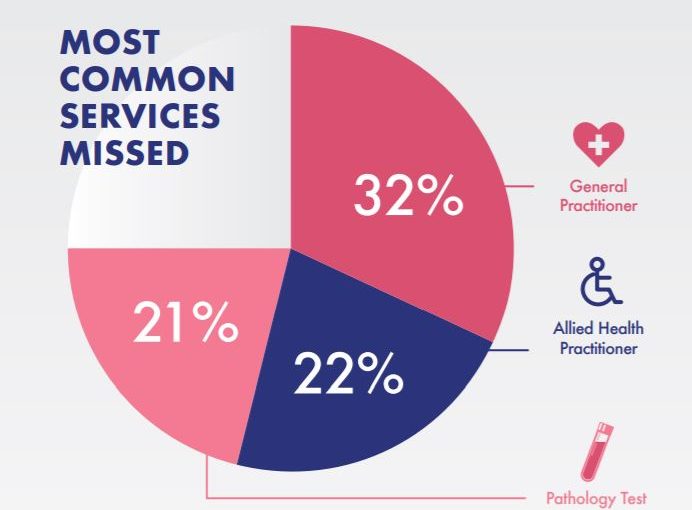A survey of more than 700 people shows many Australians have delayed or avoided healthcare appointments and tests, but are returning as pandemic restrictions ease.
Pathology Awareness Australia is a founding member of the Continuity of Care Collaboration (CCC) that put the survey together. The CCC is a national group of healthcare organisations formed to address access to healthcare for chronic conditions and new symptoms during the COVID-19 outbreak.
The survey showed 32% of respondents had delayed or avoided a visit to a general practitioner in the last three months, and 21% had missed or put off a pathology test.
Of those surveyed, 59% were worried they would be around people with COVID-19 when attending health appointments, and 55% felt it was safe to delay regular appointments if their condition had not changed.
More than a third of patients (36%) were worried health services would be too busy.
Download the CCC Consumer Survey infographic
The Royal Australian College of General Practitioners (RACGP) noted a significant drop in patients seeing GPs at the height of the pandemic. However, the rise in telephone and telehealth appointments helped to offset the overall fall in face to face consultations.
RACGP President, Dr Harry Nespolon said: “I urge anyone who might have put off seeing their GP to book an appointment now. GPs remain open and safe for patients to visit, your local GP can advise what measures they have in place to keep you safe when you need to attend in person, as well as consultation options for health concerns that can be dealt with over the phone or video call.
The drop in patients seeing their GP during the COVID-19 pandemic is very concerning – in these difficult times it is still essential for people to continue to take care of their health and see their GP for any ongoing or new health concerns.”
The survey showed 1 in 5 people had missed a pathology test in the last 3 months, and pathology data showed testing rates dropped by about 40% during the worst of the pandemic. Testing rates have improved in recent weeks and are now around 10-20% below the usual average.
Dr Debra Graves is CEO of the Royal College of Pathologists of Australasia; “During the first weeks of lockdown when COVID-19 case numbers were rising, we saw a significant drop in pathology testing but in recent weeks we can see that testing rates are starting to get closer to normal levels. The survey clearly shows a number of people have delayed tests, so we would urge those patients who have delayed a test to ensure they catch up. Pathology results are vital for diagnosing and managing chronic diseases.”
The survey also shows 22% of people have delayed or avoided a visit to an allied health professional during the last 3 months. Allied health covers a range of professions and many practitioners work with patients who have chronic health conditions and need regular care.
CEO of Allied Health Professions Australia, Claire Hewat said:
“At the start of pandemic restrictions we did see a significant drop in patients attending, and there was confusion about what services were allowed, what was considered essential, but I think the message is clearer now.
Telehealth has been taken up well and patients are beginning to return for appointments in person too. Availability of PPE has improved, and healthcare practitioners are taking all the necessary steps to ensure patient safety. I would encourage anyone still feeling anxious about attending an appointment in person to contact their healthcare provider ahead of time to talk through their concerns.”
Consumers Health Forum represents patients in Australia and has found that telehealth consultations have been beneficial to many in continuing access to healthcare.
Consumers Health Forum CEO, Leanne Wells said; “We have seen good uptake and a positive response to telehealth by consumers. However, the survey shows there are still many people avoiding medical services for a variety of reasons. We need to reassure people, particularly those with chronic conditions, of the importance of consulting their doctor about their health concerns.
We would reinforce the message that face to face appointments are still available where they are needed, such as pathology tests and physical examinations or therapies that can’t be provided remotely.”

